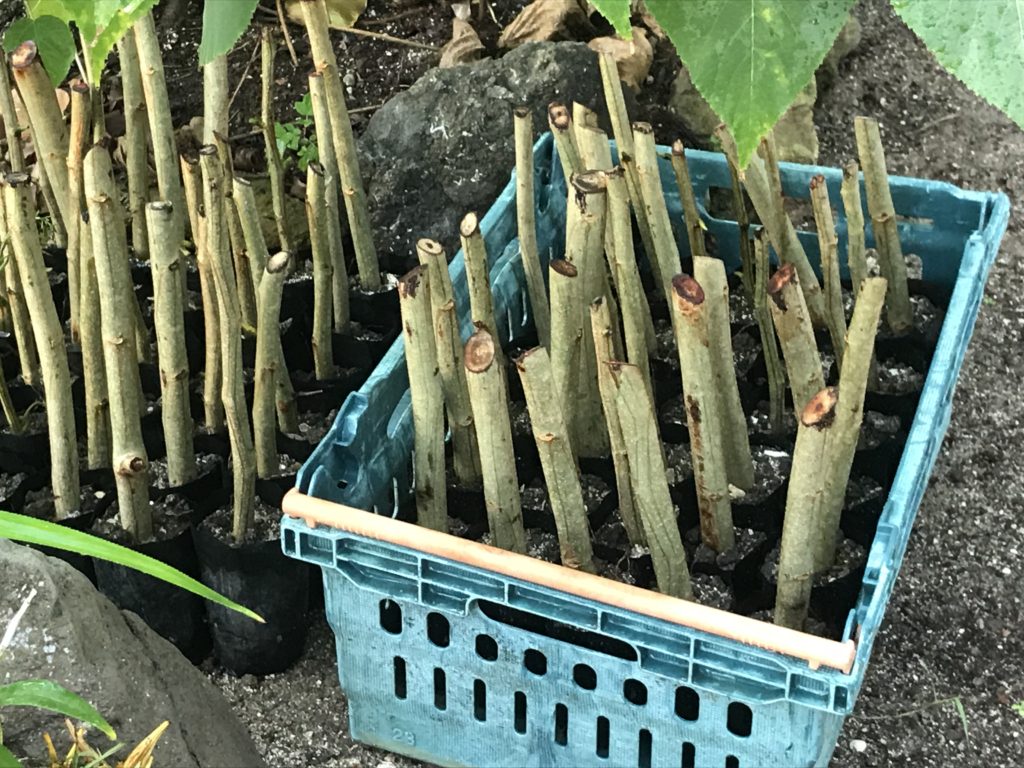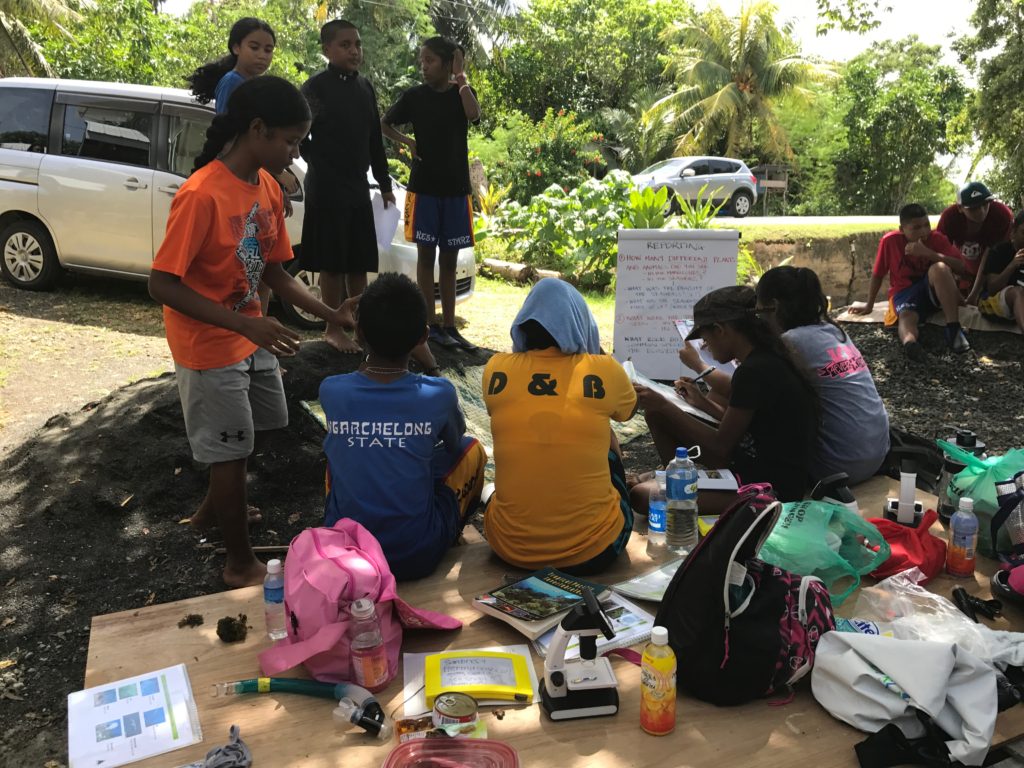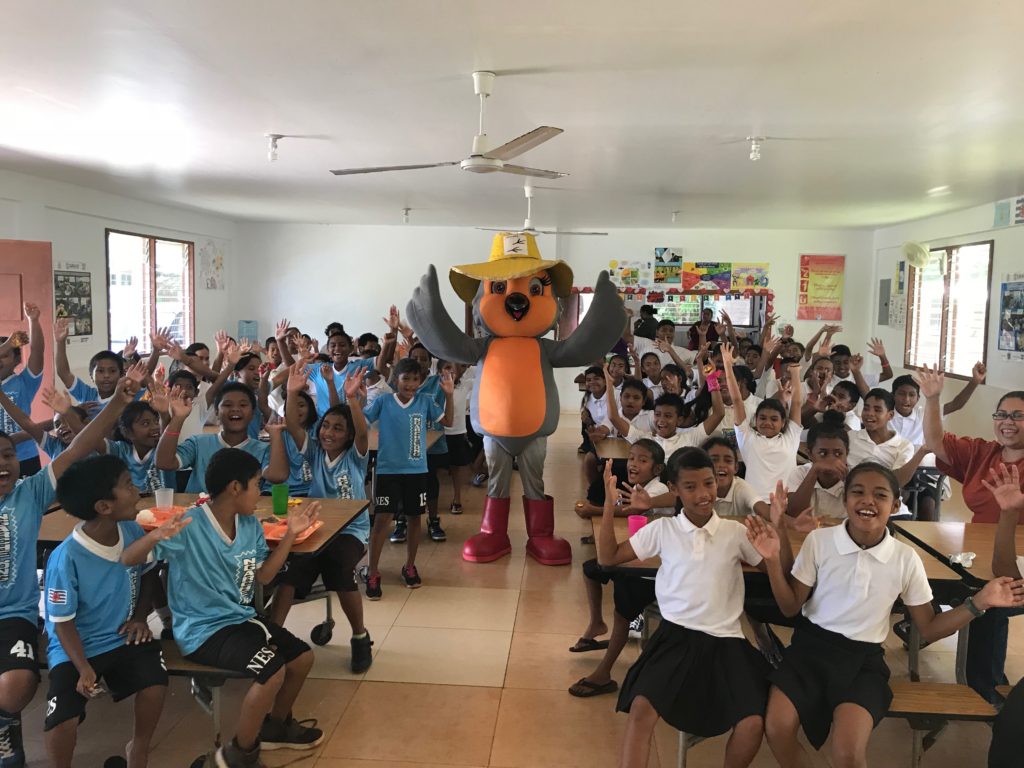Forestry Program
The Forestry Program goal is to provide capacity building to small communities to restore native forests, reduce threats to forest health, improve soil conditions and reduce degraded land areas on Babeldaob as a World Key Biodiversity Area. This project focuses on restoring a development area in Ngermetengel, Ngeremlengui, which has been severely degraded as a result of bauxite mining by Japan and poor development design and practices.

Initial vulnerability investigation and water quality monitoring links the development site to extreme sedimentation unload into the connected reef. Together with the community the site was identified and prioritized for restoration. As part of Ebiil’s community empowerment program, the community takes a strong part in the restoration plan, training for implementation and on-the-ground implementation.

The Ebiil training program for communities includes managing soil erosion, plant propagation, knowledge of native trees, rare, and endangered species, including, restoring of degraded land areas through tree planting. Also included is training on identifying threats to healthy soil, forest, and watershed such as, forest burning, unsustainable clearing, and poorly planned development projects. Various activities and events have been conducted at the project site in Ngeremlengui to provide training and activities to restore the degraded land area in Ngermetengel.
The plant nursery at Ebiil Training Center, houses tree planting seedlings, rare species and other plant collection for education purpose, as well as food crops to help communities engage in sustainable home gardening. The nursery has the capacity to house over 5000 seedlings. We have the ability to experiment with other plants and cuttings, improve our soil mixtures to include soil amendments of corals, minerals, and organic matter, and have the capacity to store large amount of plants for planned activities.
We have provided education activities and tree planting events to 720 community members and school students since the beginning of the project in January 2018 or the last 18 months. The activities engaged with Ngeremlengui leaders, women’s group, local elementary school, as well as students from various schools of Palau such as SDA, Maris Stella, Palau High School, Koror Elementary, and private business people members of Palau Rotary, and Universities.
A total of 2416 trees and 2115 lemon grass have been planted in the housing development area, old mine in Ngermetengel, and road side in Ngeremlengui with bare soil as a result of road development. A newer expansion for the program includes the state of Ngiual within their new housing development area where similar challenges of soil erosion and sedimentation is experienced. Vulnerability assessment and mapping exercises were completed in May 2019 to be used on informing a project management plan. Collaboration with Ngiual PAN office has been really positive and Willa Wong, the Coordinator has several training and tree-planting events have been conducted in the area to restore vegetative cover and reduce soil erosion. Ngiual housing development area is estimated at 19 acres, which include 28 households and a Bai for Chiefs.
